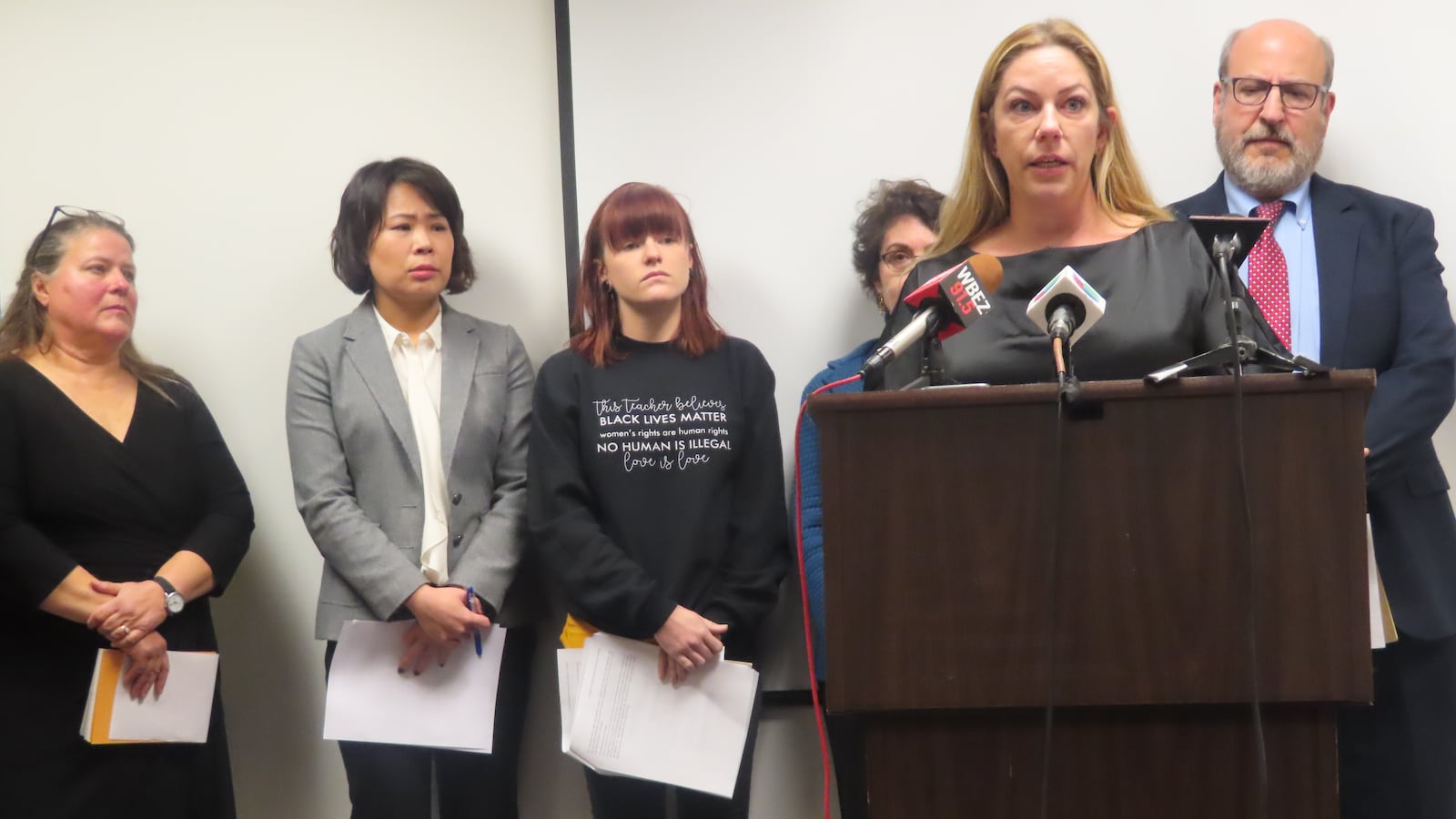Illinois may be forcing Chicago Public Schools to repair its broken special education program, but the ambitious effort still begs a critical question: What happens to hundreds of Chicago children who were harmed by the district refusing them services that would help them learn?
Neither the state nor the school district is saying yet, even as advocates for students in special education have pressed for answers.
Those children include an unnamed third-grader trapped by a tactic the district apparently used to avoid offering services required by federal law.
The child can’t read the word cat or dog, health-legal advocate Barbara Cohen said, but his teacher didn’t believe in giving low grades. So the third grader received a B in English. Then, she told the State Board of Education on Friday, when the child’s mother sought an evaluation for special education services, school officials denied the request based on his having a good grade.
Laura Boedeker, the state’s monitor overseeing special-education reforms, acknowledged that schools vary in understanding the laws and best practices. Her job, she said, “is to have those discussions and explain what good practices look like.”
That’s not likely to satisfy parents and advocates pushing for quicker action that would help families like the third-grader’s. On Friday, they pressed authorities like Boedeker, who previously served as the district’s in-house attorney.
But with a staff of just three, including herself, it’s not clear how fast Boedeker can move. In four-and-a-half months on the job, she’s only visited 10 of the district’s 600-plus schools.
“Do you have enough boots on the ground, enough help to do this work at the rate you need to do it?” asked Illinois State Board of Education member Susie Morrison.
“We could have an army and not have enough boots on the ground,” said Stephanie Jones, the board’s general counsel. “What we need more than anything is eyes and ears that tell us what is going on so we can take action. Unless we can put an ISBE employee in every school, which is unrealistic, we need parents and teachers and staff members to tell us what is going on.”
Recognizing the lag in responding to parents, the state board is weighing whether to extend the one-year deadline for filing complaints about denied or improper services.
It’s possible, Jones said, that “we can wave this until we have a system of corrective action in place.”
Neither the state nor district have answered questions like: How many students could be eligible? When exactly will the system go into effect? And what roles should advocates and schools play?
Boedeker said that federal officials have insisted that teams who put together students’ individualized education programs be involved in the remedy, because “they’re the ones on the front lines with these students.”
But lawyer Matt Cohen said he and other advocates want a process that involves more people than the IEP team.
A child who, for example, went without a one-on-one aide for many months or who didn’t get placed in therapeutic day school when needed “might have had a profound loss,” Cohen said.
How the district will compensate that family is the question.
“They may need more than just a few hours of tutoring to make up for that, they may need months and months of additional services and a specialized process to help them catch up,” Cohen said. “We’re encouraging families whose kids were hurt to bring their complaints to the state, and to seek action to get their individual child’s needs met.”
Jones said that board officials and the school district, federal government and special education advocates are discussing school guidelines for identifying students harmed, notifying their families, assessing damages and offering remedies.
About half a year has passed since a state probe found the school district violated students’ rights by routinely delaying and denying services — like aides, therapy, outside placement and busing — to students in what the district calls its Diverse Learners Program.
The state board’s Jones and Boedeker tried to placate critics by preaching patience.
“From the outside looking in it looks really slow,” Jones said, “but I think we’ve accomplished a great deal in the time we have had.”
Patience doesn’t sit well with parents desperately worried about their children.
Laurel Henson, whose son suffers from seizures, said she’s been pushing to get a nurse on staff at Smyser Elementary for two years, but has encountered “delays and excuses.” On Nov. 1, the school finally granted a meeting to discuss an IEP, she said.
“In that time, he’s had a significant increase in seizures at his school causing fatigue, aggression and bed wetting during the night,” she said. Despite her hopes for the monitor, “nothing has improved for my son and it now feels like neither CPS nor the state are accountable for ensuring students like my son have a free and appropriate education.”

